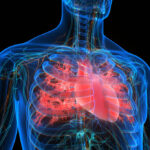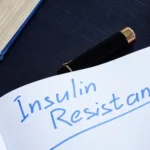- Home
- Who We Are
- Shop
- Products
- GlycoCheck
- The Science
- Study: Improving Aortic Aging with Endocalyx Pro
- Improve Vascular Health with This Supplement
- Promising Supplement for Kidney Health
- Inositol & Insulin Resistance
- PEMF Therapy Benefits
- Maximizing Mediterranean Diet Benefits
- Glycocalyx (eGC): What is Endothelial Glycocalyx?
- 9 Tips for a Healthy Aging Lifestyle
- More Science….
- News & Events
- Join
- Login

Vascular Endothelial Glycocalyx Damage in COVID-19
Abstract
The new coronavirus disease-2019 (COVID-19), which is spreading around the world and threatening people, is easily infecting a large number of people through airborne droplets; moreover, patients with hypertension, diabetes, obesity, and cardiovascular disease are more likely to experience severe conditions. Vascular endothelial dysfunction has been suggested as a common feature of high-risk patients prone to severe COVID-19, and measurement of vascular endothelial function may be recommended for predicting severe conditions in high-risk patients with COVID-19. However, fragmented vascular endothelial glycocalyx (VEGLX) is elevated in COVID-19 patients, suggesting that it may be useful as a prognostic indicator. Although the relationship between VEGLX and severe acute respiratory syndrome coronavirus 2 infections has not been well studied, some investigations into COVID-19 have clarified the relationship between VEGLX and the mechanism that leads to severe conditions. Clarifying the usefulness of VEGLX assessment as a predictive indicator of the development of severe complications is important as a strategy for confronting pandemics caused by new viruses with a high affinity for the vascular endothelium that may recur in the future.
Science Articles
Quick Navigation
Contact Info
NuLife Sciences, Inc.
7407 Ziegler Rd
Chattanooga, TN 37421
(800) 398-9842




